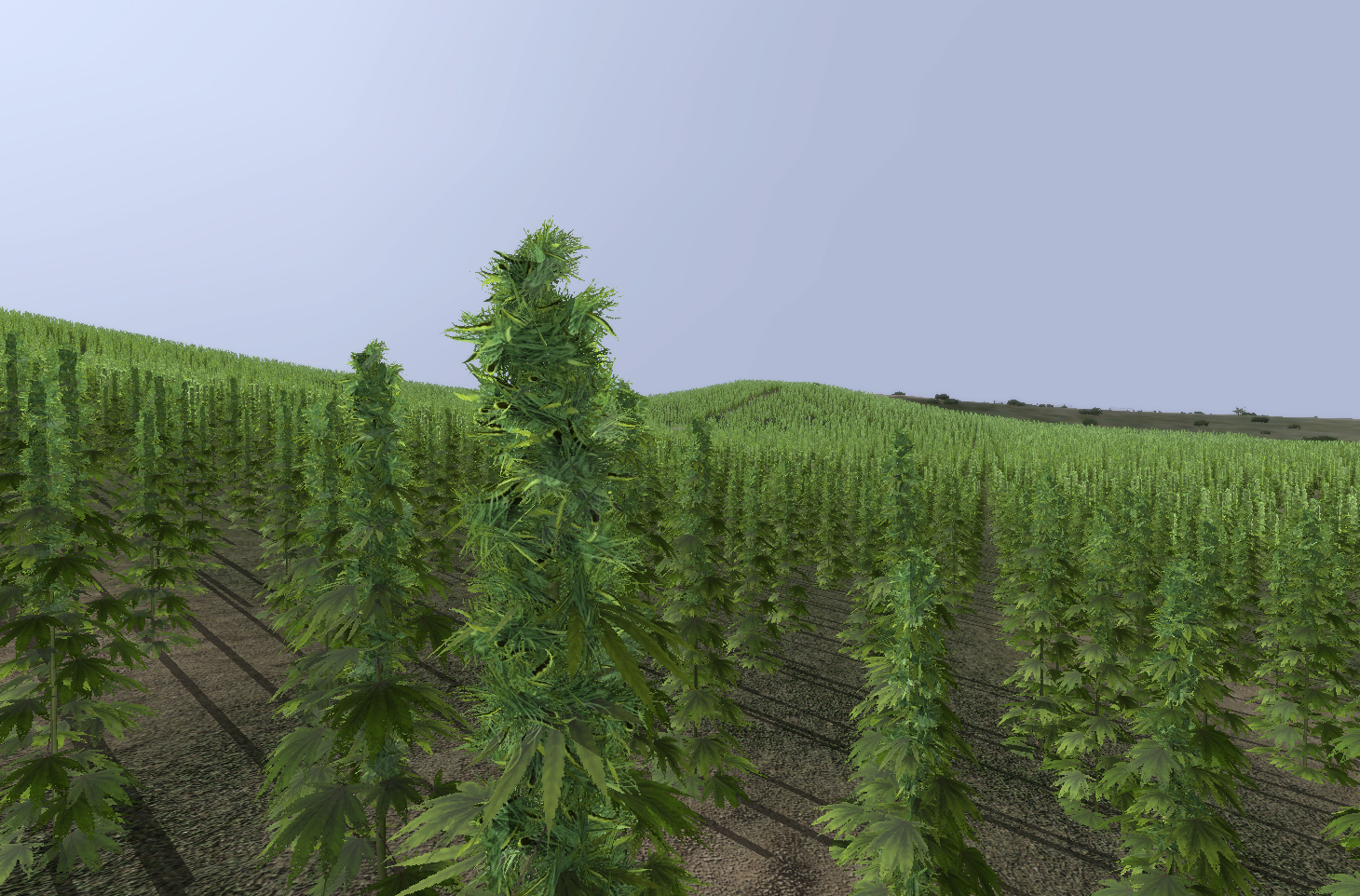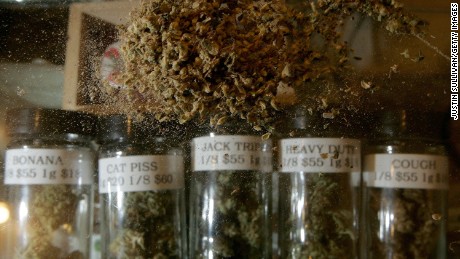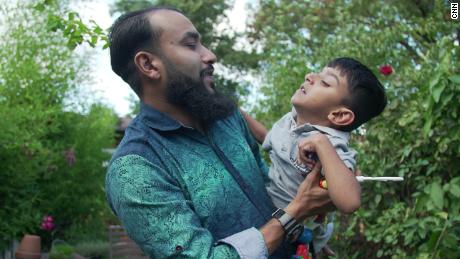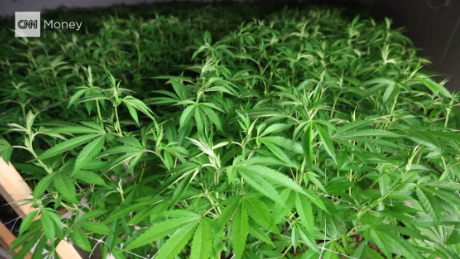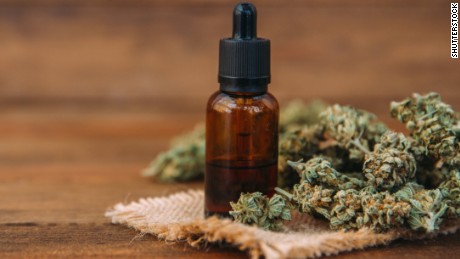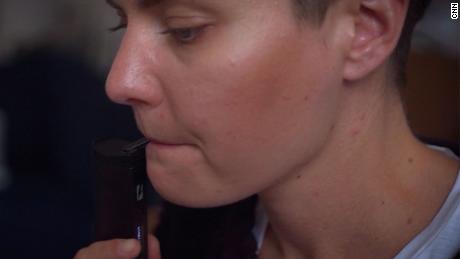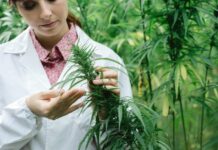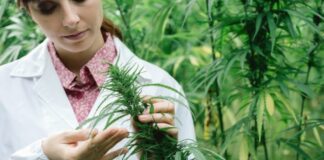As of November 1, “patients can be prescribed medicinal cannabis by specialist doctors,” the Home Office declared in a recent statement.
Campaigners lobbied the government to reconsider its previous stance categorizing cannabis as a Class A substance, defined as having no medicinal or therapeutic value.
Public mood in the UK shifted alongside highly publicized cases in which epileptic children had their illicit cannabis medications confiscated. But Sajid Javid’s appointment as home secretary in April appears to have instigated a change.
After the uproar, Javid said in June, “we completely sympathize with the families who have been facing desperate situations as they try to find treatment.”
Javid listened to concerns from parents of children with conditions such as severe epilepsy and called for an urgent review of of cannabis-based medicinal products, according to the UK government.
Health authorities will now author advice for specialist clinicians responsible for prescribing cannabis products.
“The new law will not limit the types of conditions that can be considered for treatment,” a Home Office statement reads. Instead, doctors “must make decisions on prescribing cannabis-based products for medicinal use on a case-by-case basis, and only when the patient has an unmet special clinical need that cannot be met by licensed products.”
Psychiatrist and government drugs adviser Dr. Derek Tracy highlighted pain, multiple sclerosis and epilepsy as “obvious early candidates” for treatment with cannabis.
“The larger step from a legislative point of view has been taken,” Tracy said. “What you might see is some finessing of the law in terms of specific compounds found to be particularly helpful or particularly toxic.”
Tracy sits on the Advisory Council on the Misuse of Drugs, whose recommendations the Home Office has accepted almost wholesale. The council’s role, he explained, “is specifically looking at harm.”
“Do the drugs harm people? And we know that they can. How often is that? And so forth. The Department of Health will be taking the other side, pushing for the health part; what do we know in terms of benefits?”
Fellow G7 country Germany legalized cannabis-derived medicines in 2017, but some doctors are reluctant to prescribe it, and patients face ongoing supply shortfalls. Many users still turn to illegal means, such as growing their own cannabis, said Sascha Waterkotte, spokesman for the German Hemp Association.
“Doctors could be made more sensitive towards the law,” said Waterkotte. “Germany needs more conferences for doctors, some of which have many prejudices against cannabis being used as medicine or have so far not been involved with this topic.”
“I don’t think there’s a jurisdiction that’s got this right yet,” Tracy said. “I wouldn’t confidently say that Canada or Germany or any other country has done it better than the UK or that we’ve learnt from huge mistakes; it’s too early.”
‘I want my baby to be active and happy’
Mahboob Haniffa began campaigning for cannabis legalization after learning that the plant may improve his son’s condition.
Ayub, 5, endured a meconium aspiration at birth, inhaling amniotic fluid into his lungs, which left him with cystic fibrosis, partial blindness and a tube to drain fluid from his cranium. He was diagnosed with epilepsy three years ago.
“He gets seizures maybe every week,” Haniffa said, “and he’s on about three medications at the minute to keep his seizures down.
“I want my baby to be active and happy, not like a vegetable, always sleepy and looking tired.”
One of the primary components of cannabis, cannabidiol (also known as CBD), has been shown to have an anti-epileptic effect. Users report a significant reduction in the number and frequency of seizures.
Neurophysician Dr. Mike Barnes, who specializes in brain rehabilitation and publicly extols the potential applications for cannabis, says CBD works by interacting with the innate network of endocannabinoid neurotransmitters in the brain.
“This system has a big role to play in lots of bodily functions, including epilepsy,” Barnes said. “What the plants are doing is interacting with our own system, supplementing it, putting it right.”
Epileptics access a range of anti-seizure drugs through the health service, though for patients like Ayub, with only partial success. Cannabis provides a viable alternative.
“The reality is, it’s incredibly effective,” Barnes said. “We have children who have several hundred seizures go down to just a few seizures a week.”
But Haniffa is aware that his son, who already balances a regular diet of powerful drugs, needs informed and educated practitioners to prescribe an appropriate dose. The family has refused all offers of obtaining cannabis illegally.
“If I can use that legally, with trained doctors advising the right dose for him, then we want to try that on him,” Haniffa said.
“Ayub is the light in our house. When Ayub is happy, we are happy. And we are fighting to get the right medication.”
‘Trying to be well’
Carly Jayne Barton, 32, campaigns for legal access to cannabis as deputy director of the United Patients Alliance, an advocacy group that states on its website, “we believe that no one should be criminalized for trying to be well.”
Barton has a debilitating nerve condition called fibromyalgia, for which she self-medicates with a variety of cannabis products. In 2011, a stroke led to her diagnosis.
“My whole world just collapsed,” Barton said. “My legs stopped working. My limbs were very clumsy. I was in excruciating pain, screaming the house down.”
Doctors prescribed a variety of opioids to numb her pain. She recalled their advice: “Tramadol’s not working? OK, have morphine. The morphine’s not working? OK, have fentanyl. The fentanyl’s not working? OK, have more fentanyl.”
After initially refusing cannabis as a potential alternative, Barton succumbed to desperation. “I smoked a joint one night before bed,” she said. “All of the muscle spasms in my body just let go.
“I’d not been able to not feel pain in my body for five years. That point was where I questioned everything I’d ever been told about what medicine is.”
Barton has since substituted opioids with a daily cannabis routine. She makes cannabis tinctures and balms to rub on her joints and medicates with a handheld vaporizer throughout the day.
“Given the choice between heroin, morphine and all of these horrible drugs, I think anyone with a chronic pain condition would consider it.
“This works. This is the reason I can get out of bed in the morning, go and walk my dogs, go and see my friends, run a business.”
Barnes says cannabis is “certainly as effective as opiates.”
“There are some people like Carly who can actually stop all the opioids they’re on,” he said. “And it’s safer; you can’t die from cannabis, but many people in this country die every year from an opioid overdose.”
Studies published in the US in April show that opioid prescriptions dropped 5.88% in states with medical cannabis laws compared with states without such laws.
Barton’s self-medicating remains illegal, however. British police have been notified of the incoming change in regulations, which Barton hopes will encourage leniency, but the criminality of clandestine use remains.
The UK Medicines and Healthcare products Regulatory Agency will make the full plant or “flower” available on prescription, not merely extracts in pill or liquid form.
Bedrocan Nederland, which produces pharmaceutical-grade medicinal cannabis commissioned by the Dutch government, will become the first to market cannabis in the UK.
Scientists like Barnes and Tracy hope this legislative change will clear the pathway for more clinical research. Previously, trials had been difficult and circuitous because of prohibitive regulation.
“The research has been really hampered in the last decades,” Barnes noted. “Our knowledge of cannabis is very much lacking.”
Views: 554


